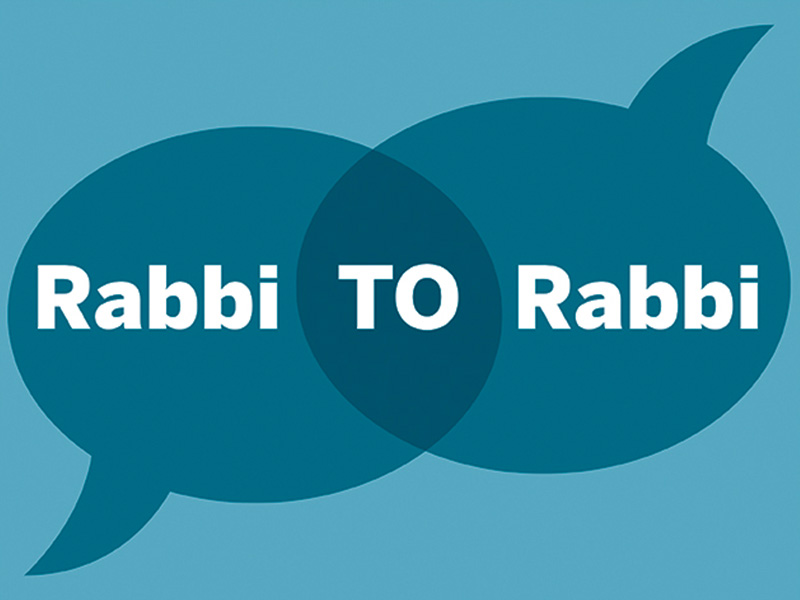When a community forgets its identity, it eventually falls apart. That was true when the Jewish People were wandering in the desert and remains true today.
Rabbi Yael Splansky
Holy Blossom Temple, Toronto
Rabbi Mark Fishman
Congregation Beth Tikvah, Montreal
Rabbi Fishman: It seems to be the wrong time to be a member of Great Britain. The nation has just (foolishly, in my opinion) voted to leave the European Union. Regret is so high that there is now a movement to vote again to reverse the “Brexit” decision. David Cameron has been replaced by Theresa May as prime minister, and political mayhem is gripping the country. And to top it all off, England recently lost to Iceland, a nation so small it was surprising it had enough people to field a national soccer team, in the European championships.
England is bordering on chaos. How did this happen? I believe the answer can be found in Bamidbar, which we are currently reading. Contained in this one book are the clues to much of what it means to become a cohesive nation.
Rabbi Splansky: More and more, Canadians recognize how fortunate we are to live in this good country. Canada Day was especially joyful this year. We sang O Canada in shul that Shabbat morning with gusto. People may be travelling far and wide this summer, but they return with extra gratitude for living in a fair and free Canada.
At the same time, we must be careful not to be smug when looking south of the border or over the ocean. There is plenty of work to do right here, too. Gratitude is a virtue; pride can quickly lead to arrogance or complicity.
Rabbi Fishman: At the beginning of Bamidbar, the Jewish People are camped around the sanctuary and everyone has his or her place. They all know their location, their purpose in life. When all is clear and we each understand our journey, there can be a sense of purpose and mission in marching toward a common goal. That is not to say such journeys are not without trials and difficulties along the way. But they are movements of a group, be it a family, a community, or even a nation, that knows who it is and where it is going.
But contrast this picture with the end of the book. The people are in disarray. There are complaints, leadership challenges and a general breakdown in the nation. At such times, a loss of who we are is the central basic reason that groups lose their way, forget their identity and eventually fall apart. It was true then, and it continues to be true today.
Rabbi Splansky: Rabbi Joseph B. Soloveitchick’s classic distinction between machaneh (camp) and eidah (congregation) comes to mind. A camp formed by fear of a common enemy or a perceived threat is established when people feel helpless and band together for protection. A congregation, on the other hand, shares a common ideology, and is bound by love rather than fear. Too much of the world today is divided into camps, factions of fear.
But a camp can become a congregation. A camp can elevate itself, as it is written: “Your camp shall become holy.” (Deuteronomy, 23:14) A people can fulfil its most worthy and noble mission when they allow themselves to dream in terms of destiny rather than fate. That is how love wins over fear, and purpose over power.
Rabbi Fishman: To be a strong family, community or nation is to have a sense of a shared story, too. To know who you are, where you come from. To understand deeply how your collective calling is guiding you. From this beginning, all else follows. Ultimately we are able to find our own personal talents, sharpen them and use them to the best of our abilities.
Rabbi Splansky: One of the shared stories of the Jewish People, recorded in the Talmud, recounts the playful question of Rabbi Nachman ben Yitzchak. “What is written on the scrolls contained in God’s tfillin?” Rather than rebuke him for the absurdity of the question, Rabbi Chiya ben Abin answers, “And who is like your people Israel, one nation on the earth.” (I Chronicles, 17: 21)
Just as the Jewish People call attention to God’s oneness and celebrate it, so does God praise the unity of the Jewish People. Our tfillin include the words of the Shema to testify to Divine unity. So, too, according to the rabbinic imagination, does God delight in witnessing unity among the Jewish People.
